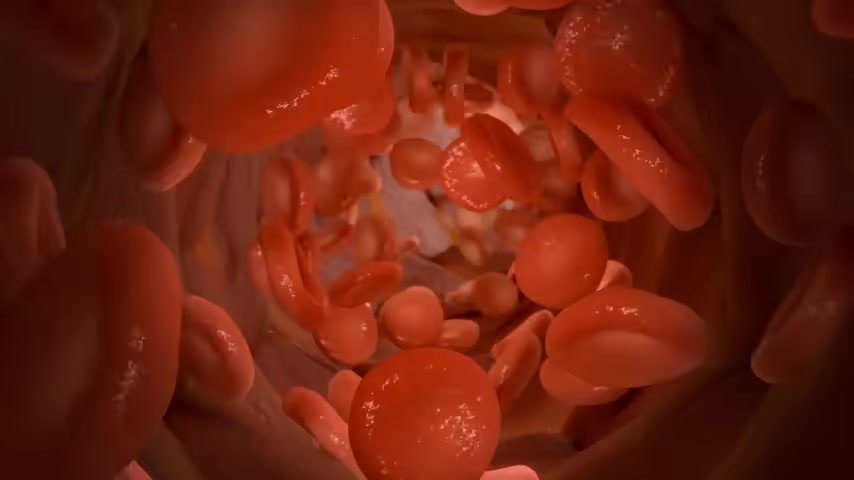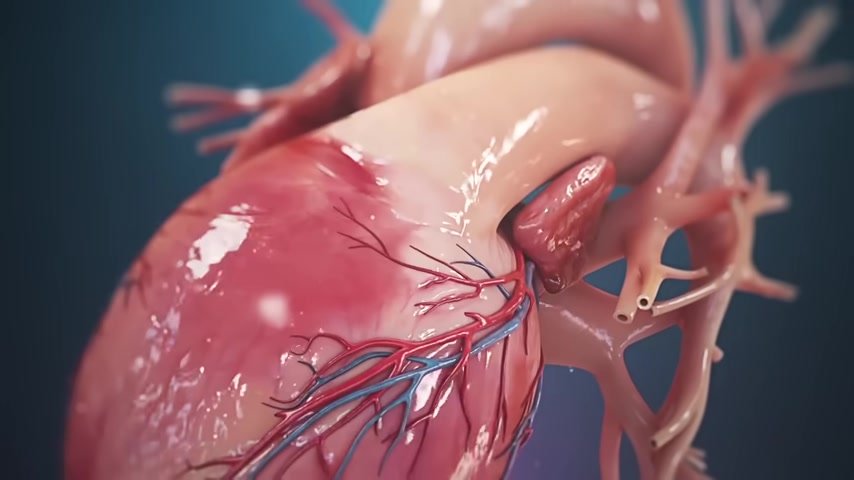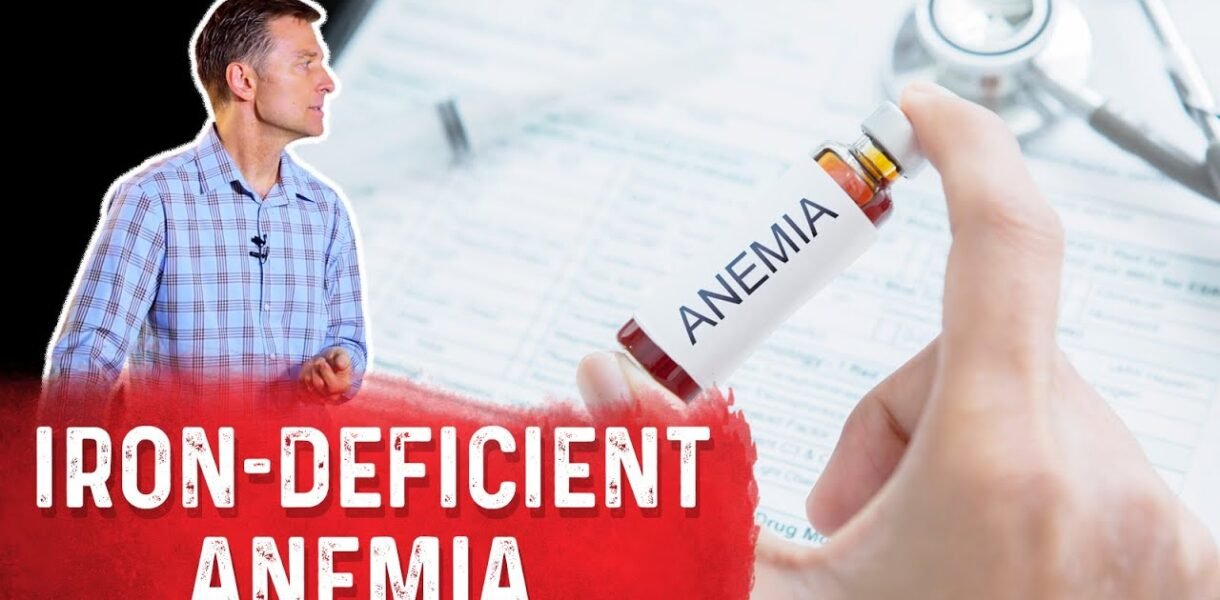Table of Contents
Iron deficiency anemia is a common condition characterized by a decrease in red blood cells or hemoglobin, leading to fatigue, weakness, and other health issues. A critical factor in managing this condition is ensuring proper iron absorption. One effective method to enhance iron absorption is by incorporating apple cider vinegar into your diet.
This natural remedy can significantly improve your body’s ability to absorb iron, making it a valuable addition to your health regimen. In this article, we will explore the benefits of apple cider vinegar for iron deficiency anemia, the symptoms and causes of the condition, and dietary strategies to boost iron levels.
What is Iron Deficiency Anemia?

Hey guys, in this topic, we’re gonna talk about iron-deficient anemia. Okay, what is anemia? It’s basically either decreased red blood cells or decreased hemoglobin because iron is the mineral that’s in the center of this molecule, or decreased ability to carry oxygen.
Summary:
- Anemia is caused by decreased red blood cells or hemoglobin.
- Iron is essential for hemoglobin, which carries oxygen.
Iron Deficiency Symptoms
Alright, some of the symptoms are you’re tired, you crave chewing ice, you’re weak, shortness of breath, and in advanced cases, you start looking pale.
Summary:
- Symptoms: fatigue, ice craving, weakness, shortness of breath, paleness.
What Causes Iron Deficiency Anemia?
Some of the causes: blood loss, menstruation, ulcers, parasites, trauma, fibroids, cancer, colon cancer, infection like malaria, and it could be genetic.
Summary:
- Causes: blood loss, menstruation, ulcers, parasites, trauma, fibroids, cancer, infections, genetics.
Decreased Absorption of Iron
But this is what I want to talk about here: it’s decreased absorption of iron. So, let’s say, for example, you’re consuming foods with iron but it’s not absorbing. This is very, very common. The number one cause is this right here, low stomach acids.
Summary:
- Decreased absorption is a major issue.
- Low stomach acid is the number one cause.

So many people are deficient in hydrochloric acid in their stomach. When we don’t have enough acid, you are going to have problems like GERD, heartburn, and acid reflux. Why? Because it takes a very strong acid to keep the valve closed at the top of the stomach. If you don’t have strong acid, the acid comes up into the esophagus, causing reflux. As you get older, you lose stomach acids.
Summary:
- Low stomach acid causes GERD, heartburn, and acid reflux.
- Aging reduces stomach acid production.
Apple Cider Vinegar For Iron Deficiency Anemia
So, apple cider vinegar is very, very, very important with meals, and that will really help the absorption of iron. Now, if you’re taking antacids, that’s really going to wipe out your stomach acids, and you’re really not going to absorb iron.
Summary:
- Apple cider vinegar aids iron absorption.
- Antacids reduce stomach acids and hinder iron absorption.
So, why are you taking antacids? To get rid of heartburn, which is caused by not enough acid because the valve won’t close. It’s a whole cycle because antacids work until the next time you eat, then you have to keep taking them.
Foods High in Iron
Oxalates, okay, it’s a compound in things like spinach and Swiss chard, which basically bind to the iron and block the iron in those two foods from you using them. About a hundred percent of the iron is locked up with oxalates in spinach and Swiss chard. Don’t forget, if you’re consuming spinach and Swiss chard, make sure you add lemon to prevent oxalate stones because you’re also blocking other minerals like calcium, magnesium, and zinc.
Summary:
- Oxalates in spinach and Swiss chard block iron absorption.
- Adding lemon can prevent oxalate stones.

If you consume a lot of grains, they have a lot of phytic acid, which also prevents the absorption of iron, zinc, and other minerals. Gastric bypass means you don’t have the surface layer, so you can’t absorb minerals as much as you did before. GI problems like IBS, Crohn’s, and celiac are all problems mainly with the small intestine, where you absorb iron.
Summary:
- Gastric bypass and GI problems reduce mineral absorption.
- Phytic acid in grains hinders mineral absorption.
So, if you’re deficient from the diet, here’s the foods that are very high in iron: clams, oysters, meats, egg liver, octopus (which, by the way, I love), and spirulina, which is loaded with iron.
These are some things that you can consume more of to get more iron. Alright, thanks for reading.
Summary:
- Foods high in iron: clams, oysters, meats, egg liver, octopus, spirulina.
Summary
- Iron deficiency symptoms include feeling tired, craving ice, weakness, and shortness of breath. In advanced cases, paleness is also a sign of iron deficiency.
- Several things can cause iron deficiency anemia. Blood loss caused by menstruation or trauma, ulcers, parasites, fibroids, cancer, infections, and genetics are all potential causes of iron deficiency.
- One of the most common causes of iron deficiency is decreased absorption of iron caused by low hydrochloric acid in the stomach. Many people have low stomach acid which causes problems like GERD, acid reflux, and heartburn.
- Apple cider vinegar with your meal can increase the absorption of iron and also decrease the negative side effects of low stomach acid. Antacids can worsen the problem by further depleting your stomach acid, making the stomach more alkaline, and decreasing the absorption of iron.
- Oxalates found in spinach and Swiss chard can also deplete iron. If your diet is high in grains, you’re probably consuming a lot of phytic acid which can also bind to important minerals and decrease their absorption.
Gastric bypass surgery can cause you to become deficient in iron. This surgery decreases the surface area of the stomach and decreases the absorption of iron and other important minerals. Digestive problems like IBS, Crohn’s, and celiac can also cause you to become deficient in iron.
It can be helpful to add the following iron-rich foods to your diet if you have iron deficiency anemia:
•Clams
•Oysters
•Meat
•Eggs
•Liver (grass-fed)
•Octopus
•Spirulina
DATA
https://www.ncbi.nlm.nih.gov/pmc/articles/PMC8880287
FAQ
Does apple cider vinegar help with low iron?
Apple cider vinegar (ACV) may aid in increasing iron absorption, particularly in individuals with low stomach acid. Research indicates that the citric acid in apple cider vinegar can enhance the intestinal absorption of iron, potentially helping those with iron deficiency anemia[1][3]. This effect is attributed to the ability of ACV to lower the pH in the stomach, which can improve iron solubility and absorption during meals[2].
What is the fastest way to cure iron deficiency anemia?
The quickest way to address iron deficiency anemia typically involves a combination of dietary changes and iron supplementation. Consuming iron-rich foods such as red meat, poultry, fish, lentils, and fortified cereals can help. Additionally, taking iron supplements as prescribed by a healthcare provider can effectively raise iron levels in the body. It is also beneficial to include vitamin C-rich foods in meals to enhance non-heme iron absorption from plant sources[4].
Is apple good for iron deficiency anemia?
Apples contain small amounts of non-heme iron and other nutrients that can support overall health, but they are not particularly high in iron. However, they can be part of a balanced diet that includes iron-rich foods. Their vitamin C content can aid in the absorption of iron when consumed alongside iron-rich meals[4].
What should I drink if I have low iron?
For individuals with low iron, it is advisable to drink beverages that enhance iron absorption. Options include water mixed with lemon juice or apple cider vinegar, as these can help increase stomach acidity and improve iron absorption. Additionally, avoiding tea, coffee, and calcium-rich drinks during meals is recommended, as they can inhibit iron absorption[4][5].
Can I take apple cider vinegar with iron pills?
Yes, apple cider vinegar can be taken with iron supplements. The acidic nature of ACV may help enhance the absorption of iron from the supplements. However, it is essential to consult a healthcare provider before combining supplements with any home remedies to ensure safety and effectiveness[2][5].
Does apple cider vinegar affect iron levels?
Apple cider vinegar may positively affect iron levels by enhancing iron absorption in the gastrointestinal tract. Its citric acid content can help increase the solubility of iron, making it more available for absorption[1][3]. However, excessive consumption of vinegar should be avoided, as it may lead to gastrointestinal discomfort.
5 weird signs of iron deficiency
- Pica: Craving non-food items like ice, dirt, or chalk.
- Brittle nails: Nails that chip or break easily.
- Unusual fatigue: Extreme tiredness not explained by lack of sleep.
- Cold hands and feet: Poor circulation can lead to cold extremities.
- Restless legs syndrome: An uncontrollable urge to move the legs, often accompanied by discomfort[2][4].
Does vinegar reduce iron levels?
Vinegar, particularly apple cider vinegar, does not reduce iron levels; rather, it can enhance iron absorption when consumed with iron-rich foods. However, excessive vinegar intake may lead to gastrointestinal issues, which could indirectly affect nutrient absorption[5].
Does apple cider vinegar lower ferritin levels?
There is no substantial evidence to suggest that apple cider vinegar lowers ferritin levels. In fact, its potential to enhance iron absorption could help maintain or improve ferritin levels, which reflect the body’s iron stores[1][3].
Iron deficiency medication
Iron deficiency is commonly treated with iron supplements, which can be in the form of ferrous sulfate, ferrous gluconate, or other formulations. These medications are prescribed based on the severity of the deficiency and individual health needs. It’s essential to follow a healthcare provider’s recommendations regarding dosage and duration of treatment[4].
What are the 3 stages of iron deficiency?
- Iron Depletion: Decreased iron stores in the body, often without symptoms.
- Iron Deficiency: Reduced iron levels leading to symptoms such as fatigue and weakness.
- Iron Deficiency Anemia: Severe deficiency resulting in low hemoglobin levels, causing significant symptoms like pallor, shortness of breath, and increased heart rate[4].
Low iron symptoms female
Common symptoms of low iron in females include:
- Fatigue and weakness
- Dizziness or lightheadedness
- Pale skin
- Shortness of breath
- Cold hands and feet
- Irregular heartbeat
- Brittle nails
- Restless legs syndrome[2][4].




